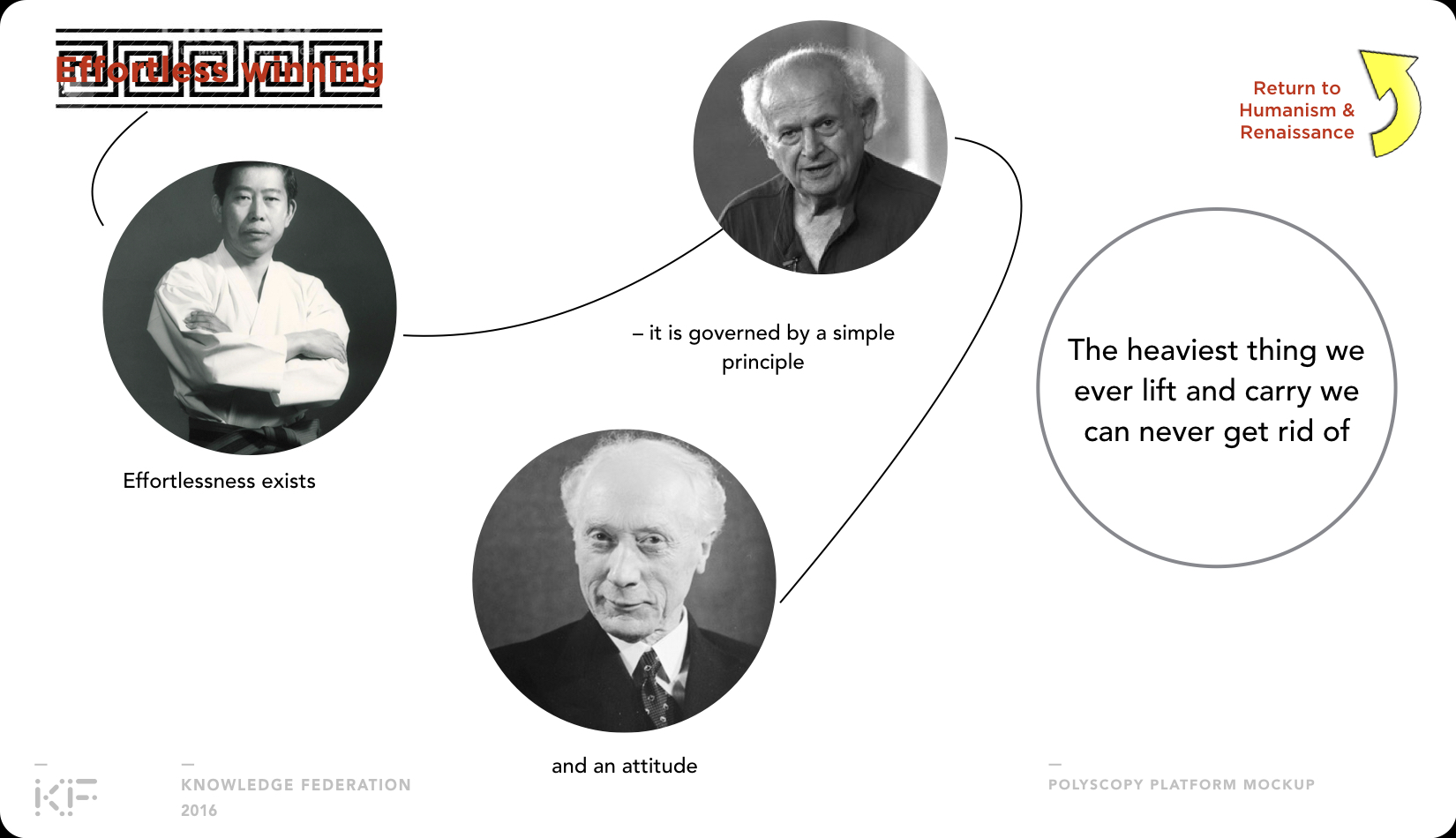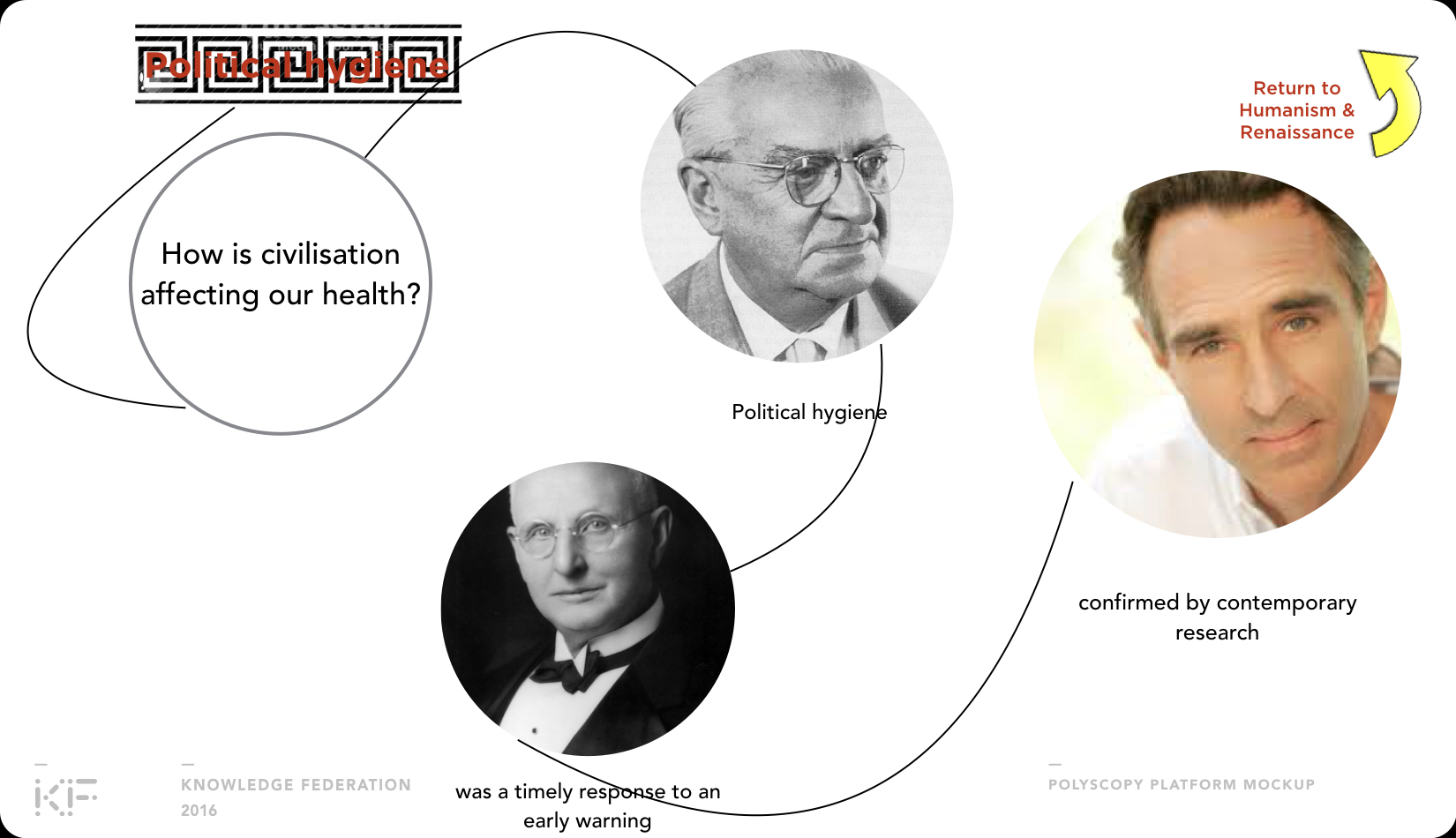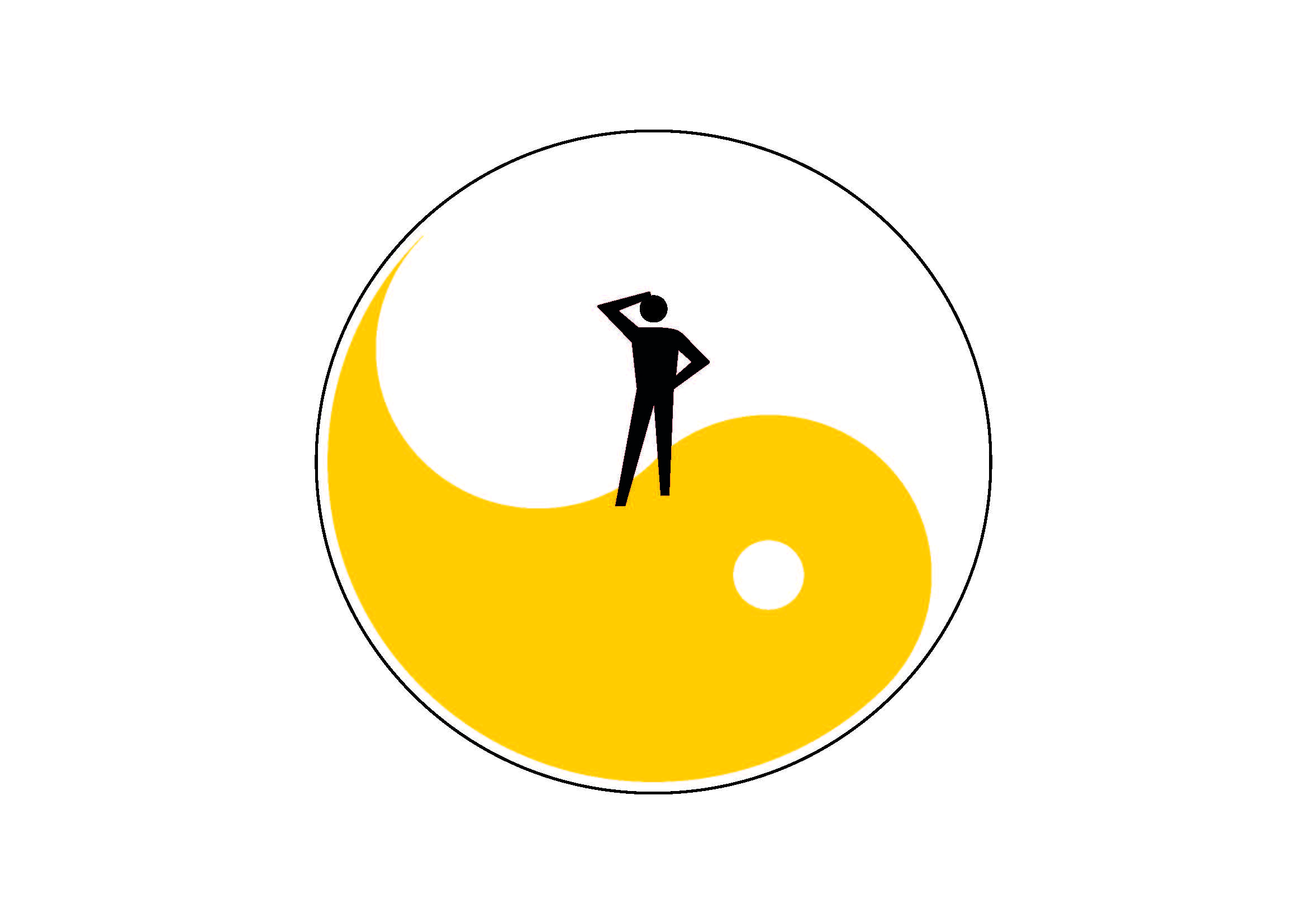Difference between revisions of "Holotopia: Convenience paradox"
m |
m |
||
| Line 68: | Line 68: | ||
<div class="row"> | <div class="row"> | ||
| − | <div class="col-md-3"><em>Culture</em> and <em>information</em></div> | + | <div class="col-md-3"><h2><em>Culture</em> and <em>information</em></h2></div> |
<div class="col-md-7"><p>By defining <em>culture</em> as "<em>cultivation</em> of <em>wholeness</em>", and <em>cultivation</em> by analogy with planting and watering the seed, we rescue <em>culture</em> from <em>reification</em> (identifying "culture" with institutional and human <em>order of things</em> we see around us) and assign to it a direction, and purpose.</p> | <div class="col-md-7"><p>By defining <em>culture</em> as "<em>cultivation</em> of <em>wholeness</em>", and <em>cultivation</em> by analogy with planting and watering the seed, we rescue <em>culture</em> from <em>reification</em> (identifying "culture" with institutional and human <em>order of things</em> we see around us) and assign to it a direction, and purpose.</p> | ||
<p>By specifying that purpose in this specific way, we emphasize the <em>human development</em> aspect.</p> | <p>By specifying that purpose in this specific way, we emphasize the <em>human development</em> aspect.</p> | ||
| Line 76: | Line 76: | ||
<div class="row"> | <div class="row"> | ||
| − | <div class="col-md-3"><em>Religion</em> and <em>archetype</em></div> | + | <div class="col-md-3"><h2><em>Religion</em> and <em>archetype</em></h2></div> |
<div class="col-md-7"><p>We <em>federate</em> a definition—by combining a key idea of Martin Lings, with some traditional ideas about the human and his arts.</p> | <div class="col-md-7"><p>We <em>federate</em> a definition—by combining a key idea of Martin Lings, with some traditional ideas about the human and his arts.</p> | ||
<p>What exactly enabled people to <em>transcend</em> narrowly-conceived egoism, and create great works of science or art, or liberate people from oppression? We call the answer <em>archetypes</em>, which may specifically be "truth", "beauty", "art", "freedom", "justice", "motherhood"...</p> | <p>What exactly enabled people to <em>transcend</em> narrowly-conceived egoism, and create great works of science or art, or liberate people from oppression? We call the answer <em>archetypes</em>, which may specifically be "truth", "beauty", "art", "freedom", "justice", "motherhood"...</p> | ||
| Line 87: | Line 87: | ||
<div class="row"> | <div class="row"> | ||
| − | <div class="col-md-3">Movement and Qi</div> | + | <div class="col-md-3"><h2>Movement and Qi</h2></div> |
<div class="col-md-7"><p>This <em>prototype</em> shows how <em>human development</em>, and the heritage of the <em>human development</em> traditions, can be seamlessly incorporated in the academic scheme of things. </p> | <div class="col-md-7"><p>This <em>prototype</em> shows how <em>human development</em>, and the heritage of the <em>human development</em> traditions, can be seamlessly incorporated in the academic scheme of things. </p> | ||
| − | <p>A salient point has been to turn the Oriental concept "qi" into a <em>keyword</em>, defined phenomenologically. And then using it to show that a variety of Oriental traditions are really just different ways of working with a single core issue. See a description [http://kf.wikiwiki.ifi.uio.no/APPLICATIONS#Movement_and_Qi here]. | + | <p>A salient point has been to turn the Oriental concept "qi" into a <em>keyword</em>, defined phenomenologically. And then using it to show that a variety of Oriental traditions are really just different ways of working with a single core issue. See a description [http://kf.wikiwiki.ifi.uio.no/APPLICATIONS#Movement_and_Qi here].</p> |
</div> </div> | </div> </div> | ||
<div class="row"> | <div class="row"> | ||
| − | <div class="col-md-3"> | + | <div class="col-md-3"><h2>Liberation</h2></div> |
<div class="col-md-7"><p>The book titled "Liberation", and subtitled "Future Religion", is intended to serve as the first in the Holotopia series.</p> | <div class="col-md-7"><p>The book titled "Liberation", and subtitled "Future Religion", is intended to serve as the first in the Holotopia series.</p> | ||
<p>Recreating, or better said re-evolving "religion" is a majestically potent and wonderfully rich symbolic act—which is likely to stir up the spirits, and strike a good conversation...</p> | <p>Recreating, or better said re-evolving "religion" is a majestically potent and wonderfully rich symbolic act—which is likely to stir up the spirits, and strike a good conversation...</p> | ||
Revision as of 08:59, 17 May 2020
Contents
H O L O T O P I A: F I V E I N S I G H T S
Convenience paradox
Without information (culture), we pursue the naive value of convenience. Squander enormous resources pursuing happiness in a direction that doesn't lead there. Thereby we ignore the vast opportunities that reside in human development—through the development of culture.
XXXXXXX
"Pursuit of happiness" is presently conceived as pursuit of convenience—of goals that appear attractive, because they give instant reward. Needless to say, this naive idea of happiness is endlessly reaffirmed by advertising.
Convenience is a paradoxical and deceptive value. Surprisingly often, it leads us to a less convenient condition.
But its largest fault is that it separates us from the most rewarding pursuit—of human development; by developing culture.
Stories
Moshe Feldenkrais
This is a placeholder
Researcher physicist turned physical therapy pioneer. <p> <p>The story, intended to serve as a parable, is about the sensation of effort. Has technology made living easy? The scope is that the heaviest thing we ever lift up and carry (you guessed–it's your body) we can never get rid of. The insight is that a giant part of (the experience of) effort is in pathological tensing and tension patterns, permanent and momentary. Which can be eliminated through human development.
The larger point is that even in physical effort , the human development offers overlooked advantages. We may only wonder about all the rest.
Werner Kollath
This is a placeholder
Medical researcher and professor, progenitor of scientific study of hygiene. Attempted to create "political hygiene as science".
The big issue: How does civilization affect our health (wholeness)? Kollath's core point: This issue is political—in the sense that it is in the "interest" of the power structure to create not so good lifestyle patterns. Kollath's big point: This must be countered by institutional means.
The story of Kollath is illuminating—and you may read it here.
Buddhadasa
There once was a laboratory of sorts, experimenting with our very core theme—human development; ways to wholeness. Twenty-five centuries ago, in India.
So what do we really know about this theme?
The experiences of this old school, extended further during the time that intervened, suggests that the way to wholeness is not just different, but indeed opposite from how we tend to pursue it.
The story of Buddhadasa—which is a story of a recent rediscovery of this school's key discovery—is of especial importance to us, because it problematizes the very key meme, let's call it egocenteredness. It has turned out that transcendence of egoism of any kind, and seeing oneself as part in a much larger whole, is not only an essential element of collective wholeness, but also (!) the key to personal happiness! The story is told here.
Ideogram
See it commented here.
Keywords
Culture and information
By defining culture as "cultivation of wholeness", and cultivation by analogy with planting and watering the seed, we rescue culture from reification (identifying "culture" with institutional and human order of things we see around us) and assign to it a direction, and purpose.
By specifying that purpose in this specific way, we emphasize the human development aspect.
We can now ask: What sort of information does a culture need, to be able to function as a culture? The answer is already in the definition: Scientific, causal thinking won't help. To see that a seed must be planted and watered, we depend on the experience of the past generations.
Information is defined as "recorded experience". The subtle point is that any kind of record (not only black and white and factual) is included (customs, rituals, works of art, architecture...).
Religion and archetype
We federate a definition—by combining a key idea of Martin Lings, with some traditional ideas about the human and his arts.
What exactly enabled people to transcend narrowly-conceived egoism, and create great works of science or art, or liberate people from oppression? We call the answer archetypes, which may specifically be "truth", "beauty", "art", "freedom", "justice", "motherhood"...
Imagine the kind of wheel one sees in cowboy movies; imagine the archetypes as positioned at points where the spokes meet with the periphery of the wheel. In the center of the wheel is the central archetype—which we may call God, or love, or "pure archetypal energy".
We define religion as the praxis of connecting with archetypes.
Prototypes
Movement and Qi
This prototype shows how human development, and the heritage of the human development traditions, can be seamlessly incorporated in the academic scheme of things.
A salient point has been to turn the Oriental concept "qi" into a keyword, defined phenomenologically. And then using it to show that a variety of Oriental traditions are really just different ways of working with a single core issue. See a description here.
Liberation
The book titled "Liberation", and subtitled "Future Religion", is intended to serve as the first in the Holotopia series.
Recreating, or better said re-evolving "religion" is a majestically potent and wonderfully rich symbolic act—which is likely to stir up the spirits, and strike a good conversation...
The book federates Buddhadasa's core message—by embedding it into the general scheme of things that the convenience paradox and the Movement and Qi prototype are pointing to. An interesting point is that the essence of religion here is not a rigid belief system and identity, but on the contrary—a liberation from rigid belief systems and identities...



